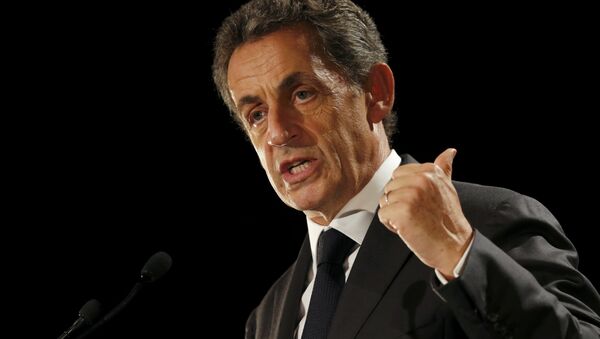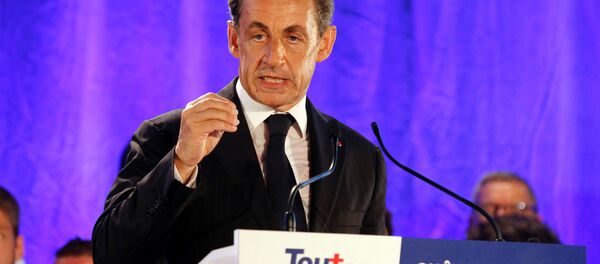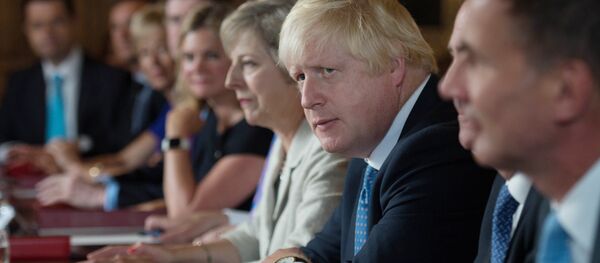"A new Europe," is the ambitious boast Sarkozy promises he will be able to achieve for the world — but only if he is chosen by the French to become their president once more in the upcoming French elections, next spring.
What he thinks would be instrumental to an amended, better Europe, is the inclusion of the UK back into the EU fold. That's despite the unprecedented 23 June referendum result, in which the majority of Brits voted to leave the EU.
Sarkozy claimed that a renegotiation of the EU Treaty, led by himself and Germany, would have: a reformed Schengen passport-free zone; a vastly reduced number of European Commission's prerogatives; and a halt to membership talks with Turkey.
However, Sarkozy's encore plan for a Brexit do-over, seems hinged on his ability to pull off what would be an extraordinarily fast-tracked diplomatic coup.
His Strategy
Day 1 of his French presidency: Fly to Berlin to present German Chancellor Angela Merkel with his version of the EU treaty, affecting all 27 remaining member states. Gain approval from Germany in less than 24 hours.
Day 2 of his French presidency: Fly to London and present the new EU treaty draft, ready for UK Prime Minister Theresa May to consider whether to accept, and in doing so, turn her back on the democratic will of 51% of the British electorate that voted to leave the EU.
Sarkozy's idea of a new treaty to undo Brexit is hopping mad on so many levels https://t.co/SdbBUMOb9d
— Wolfgang Munchau (@EuroBriefing) September 28, 2016
"I would tell the British, you've gone out, but we have a new treaty on the table so you have an opportunity to vote again," said Mr. Sarkozy, as quoted in the Financial Times.
"But this time not on the old Europe, on the new Europe.
"Do you want to stay? If yes, so much the better. Because I can't accept to lose Europe's second-largest economy while we are negotiating with Turkey over its EU membership. And if it's no, then it's a real no.
"You're in or you're out."
The prospect of such a monumental political about-face, and at such dizzying speed, has left Brits torn on how to respond.
Bloody Sarkozy. Just who the hell do these people think they are? #Brexit
— Elliot J. Cornish (@ElliotJCornish) September 28, 2016
Certainly, many of UK Prime Minister Theresa May's staunchly euroskeptic colleagues are expected to reject such a French overture.
On Wednesday, Lord Michael Howard, the former Conservative Party leader, slammed Sarkozy's suggestion that the UK could abandon Brexit.
Speaking to BBC Radio, he emphasized that there is "no question now of any deal."
"The Brexit vote has created a new dynamic. We are going to leave the European Union…as soon as we can. The uncertainty is something we don't want to prolong."
Indeed, there is still a great deal of uncertainty swirling around the EU's unique dilemma of how to manage the UK's disentanglement from the union.
In the UK, Prime Minister May has refused to say when she will invoke Article 50, the official bureaucratic mechanism that would start the official negotiations. Her reluctance has led to several of her own cabinet members to break ranks and publicly call on her to get the process started as soon as possible.
However, some political commentators have seen an opportunity for Mrs. May to further delay invoking Article 50, in Sarkozy's comments this week.
Meanwhile, in the EU, there is currently no agreement among the remaining 27 members in its negotiating stance towards Britain on key issues such as: immigration controls, whether to grant the UK full access to the single market and on existing trade deals.
However, Mr. Sarkozy said that a renegotiated EU treaty is the only way to stop anti-EU forces across the bloc, such as France's far-right National Front.
The National Front is expected to gain support in next year's elections, to the detriment of Sarkozy's own Republican Party.
"Everybody in Europe is annoyed when France and Germany strike deals, but when they don't, everybody frets," Sarkozy said.
"And don't tell me this treaty would be complicated to negotiate. I have a lot of experience negotiating treaties. The worst would be to do nothing."




